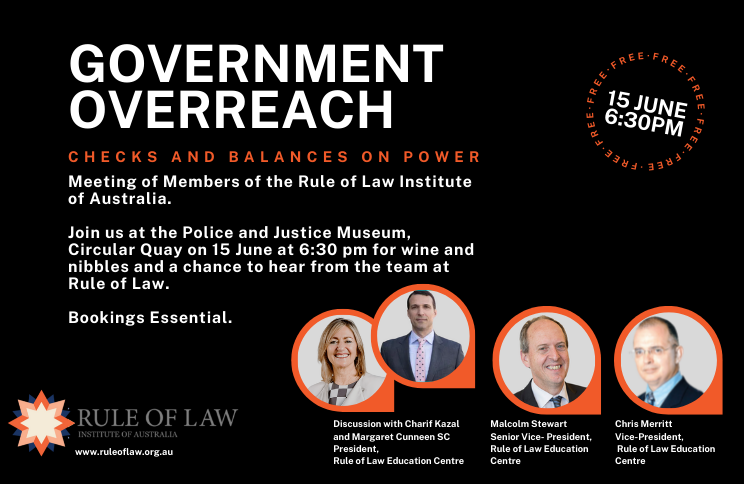
In the age of Covid, the propensity for government over-reach has never been greater. During the height of the pandemic states closed their borders to the rest of the nation with little regard for the plain words of the Constitution’s guarantee of freedom of movement.
The government of Victoria even used retrospective legislation to strand Victorians interstate with little understanding that this infringed a core principle of the rule of law by retrospectively imposing a detriment on those who had done nothing wrong.
Yet in one regard, the pandemic has been beneficial: it has triggered a great awakening about the need to check government power.
People in every state now know the Constitution’s ostensible guarantee of freedom of movement across the nation has been watered down by successive High Courts to the point where the words no longer mean what they say.
That guarantee, found in section 92 of the Constitution, has been defeated by state governments that are blind to the national interest.
Victorians in particular have learned a hard lesson about their Charter of Rights. When that state’s government locked them in their homes for months, the charter’s guarantee on freedom of movement proved to be meaningless.
The issue here is governance, not health. No matter how beneficial government action might be, people are coming to see that it is far more important that governments – and their agencies – are always subject to effective oversight and checks on their power.
During the pandemic, some state governments even restricted parliamentary review of executive action only to face justified demands for the restoration of this most fundamental element of parliamentary democracy.
Responsible government, which is the greatest check on government over-reach, means premiers, ministers, chief health officers and all their agencies are responsible to parliament. Yet that mechanism can be illusory – as it was for a time in Victoria until community sentiment forced a change.
Government over-reach, in all its forms, is a threat to liberty. This is particularly the case with vague laws that make it difficult for people to discern the boundaries of lawful conduct.
This is apparent with the vague definition of corruption used by the Independent Commission Against Corruption in NSW. This commission has twice been found by superior courts to have misunderstood this definition causing immense harm to innocent people.
Even today, those whose conduct has breached no law can still be publicly impugned by this commission. Yet some see it as a model for a national integrity commission.
The problem with over-reach also arises when governments draft statutes that are too long and complicated for their meaning to be readily understood.
How, for example, can those in business be expected to comply with their legal obligations when those obligations are buried inside the Corporations Act which runs to 3930 pages of legislation, 1311 pages of regulations and 270 legislative instruments made by the Australian Securities and Investments Commission?
There is no magic bullet that will fix these problems. It requires concerted efforts to ensure federal and state lawmakers know there is support for checks on government over-reach.
As society moves further into the age of Covid, the principles that underpin democratic governance and the rule of law need to be part of that journey. They cannot be left behind.
-Chris Merritt
